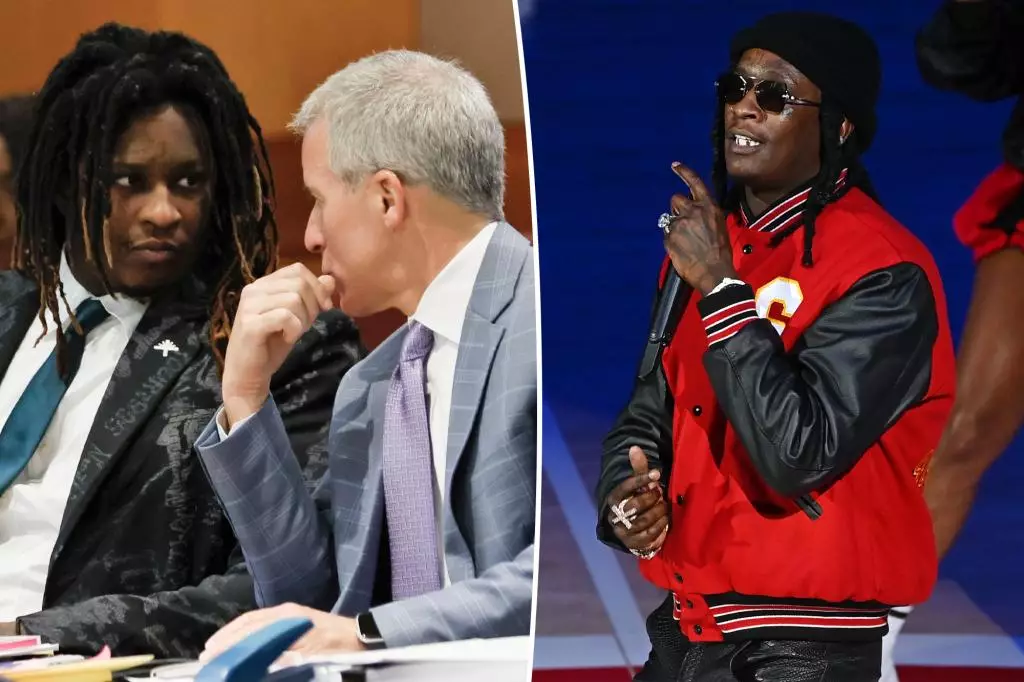The recent plea deal accepted by rapper Young Thug, whose real name is Jeffery Lamar Williams, marks a significant chapter in the annals of Georgian criminal proceedings. Concluding the longest criminal trial in the state’s history, this case drew widespread attention not only due to Young Thug’s celebrity status but also because of the serious nature of the charges he faced. Pleading guilty to a combination of drug, gun, and gang-related offenses, Young Thug has accepted an opportunity for rehabilitation rather than succumbing to the daunting prison sentence of 120 years that loomed over him.
Young Thug’s situation highlights a broader issue in the intersection of entertainment, crime, and justice system intricacies. His plea resulted in considerable consequences: a 15-year probation period, mandatory community service, and specific restrictions on his movements within Atlanta. Such terms illustrate a significant shift in how the justice system approaches high-profile cases, balancing accountability with the possibility of reintegration into society.
Fame can act as a double-edged sword in legal contexts. In Young Thug’s case, his celebrity status brought intense media scrutiny, which can sometimes distort public perception, overshadowing the practical realities of the court. The accusations surrounding him—ranging from armed robbery to racketeering—paint a complex picture that blurs the lines between his artistic persona and personal life. The prosecution’s attempts to link his music label, Young Stoner Life, to the alleged street gang Young Slime Life further complicates matters, as such assertions often stem from existing stereotypes in popular culture.
As Young Thug navigated these legal hurdles, it became apparent that the stakes were immense—not merely for his career but for his personal identity. The court proceedings revealed not just the potential for a long-term incarceration but also the risk of being forever labeled within a criminal context. The distinct nature of his plea deal suggests a calculated decision to seek redemption while still recognizing the consequences of his past actions.
With the culmination of his trial, Young Thug finds himself at a crossroads. Through the conditions outlined in his plea agreement—including community service and an educational role promoting anti-gang sentiments—he has the opportunity to reshape his narrative. Over the next 15 years of probation, he is required to engage directly with the community, possibly influencing young individuals who might find themselves drawn into similar lifestyles.
This transition can serve as a crucial learning experience for him and others in the public eye. It sends a message about accountability and the potential for change, demonstrating that even high-profile figures can emerge from legal battles with lessons that reach beyond personal consequences. It also forces society to reckon with how we engage with artists—viewing them not solely as entertainers but as individuals whose actions carry profound implications.
Young Thug’s acceptance of the plea deal reflects a pivotal moment in his life, one that intertwines personal responsibility with the broader implications of celebrity culture. As he grapples with the ramifications of his past, his journey serves as a testament to resilience, showcasing the potential for redemption in the face of overwhelming adversity.

